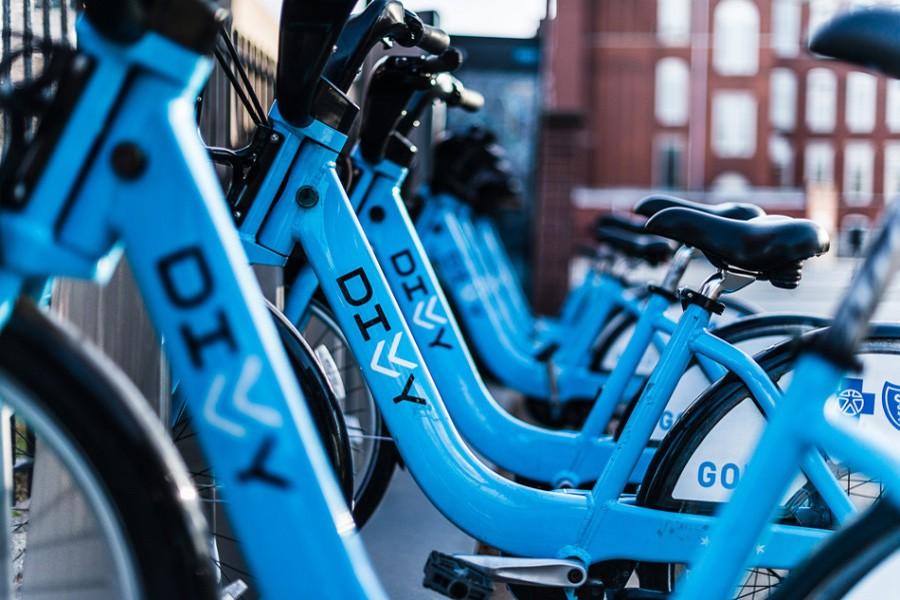Council narrowly approves Divvy bike plan to be installed this year
Ten Divvy bike-sharing stations will come to Evanston this summer. City Council voted 5-4 in favor of installing the bike racks, two of which will be located on Northwestern’s campus.
February 24, 2016
Divvy bike-sharing stations will officially come to Evanston this summer after City Council approved their installation in a 5-4 vote Monday.
The vote allows for the city to engage in an intergovernmental agreement with Chicago to expand the bike-sharing program to Evanston. Eight stations with ten bikes each will be purchased in part using a grant from the Illinois Department of Transportation and will be installed by July 1 of this year, along with two additional stations to be placed on Northwestern’s campus.
Evanston, in conjunction with nearby suburb Oak Park, received the grant as part of a larger effort to expand the Divvy bike system from Chicago to the outer neighborhoods and suburbs.
“It’s another layer to our sustainability efforts and it provides for a bike transportation for those who either don’t want to make the investment in a bike for themselves or don’t have the ability to do so,” said Mark Muenzer, Evanston’s director of community development.
Muenzer said Evanston has been working on the project for two years, and the location of the eight stations in the city was determined by proximity to bike lanes, heavily-trafficked areas and public transit sites.
The eight stations are spread throughout the city, with one at each of the Davis, Central and Main CTA stations, and others in West and South Evanston. Apart from the two stations on NU’s campus, there will be a third near NU at the corner of Chicago Avenue and Sheridan Road.
Kumar Jensen, acting head of sustainability for the city, said the bike-sharing stations would allow for Evanston residents to travel east and west across the city more easily, and the initiative aligns well with Evanston’s sustainability efforts.
“It allows commuters and travellers some flexibility in the way they’re choosing to move,” he said. “It’s just supporting the idea that Evanston is a place where people can get around in a lot of different ways.”
Jensen also said he hopes the stations will allow for Evanston residents to be more connected to other public transportation systems as well as give them an alternative mode of transportation for getting into Chicago.
Divvy stations are spread throughout Chicago and the surrounding neighborhoods. Customers can purchase either yearly or 24-hour passes, and Evanston will retain some of the revenue from the passes bought by Evanston residents, Katherine Knapp, the city’s traffic and mobility coordinator, said.
Knapp said during Monday’s council meeting that each bike station costs around $58,000, and the grant of $320,000 — combined with money received from sponsorships from NU and two local hospitals, among others — would cover most of the initial costs. The city will have to invest $80,000 into the program in order to receive the grant, some of which will come from sponsorships and the rest out of the city’s parking fund.
Although the costs through 2016 are covered, several aldermen expressed concern at Monday night’s meeting that the bike-sharing program was not worth the investment.
“Divvy bikes are awesome, Divvy bikes are fun, but I just feel like they cost too much for what they are,” said Ald. Donald Wilson (4th), who voted against the intergovernmental agreement.
Other aldermen were concerned the revenue the city would receive from user fees would not cover the upkeep fees, and that the city would end up having to pay more for the bikes going forward than anticipated. Knapp said during the meeting they were unsure how much money would be generated in user fees.
“I don’t think they’re bad or that they’re a bad idea,” Wilson told The Daily. “It’s just an awful lot of money for 80 bicycles.”
Email: [email protected]
Twitter: @noracshelly


